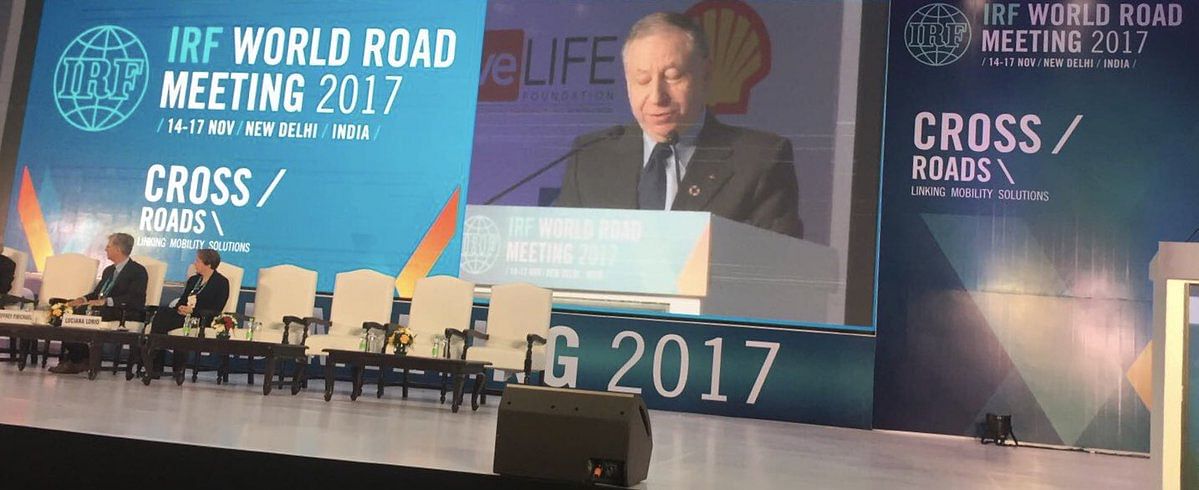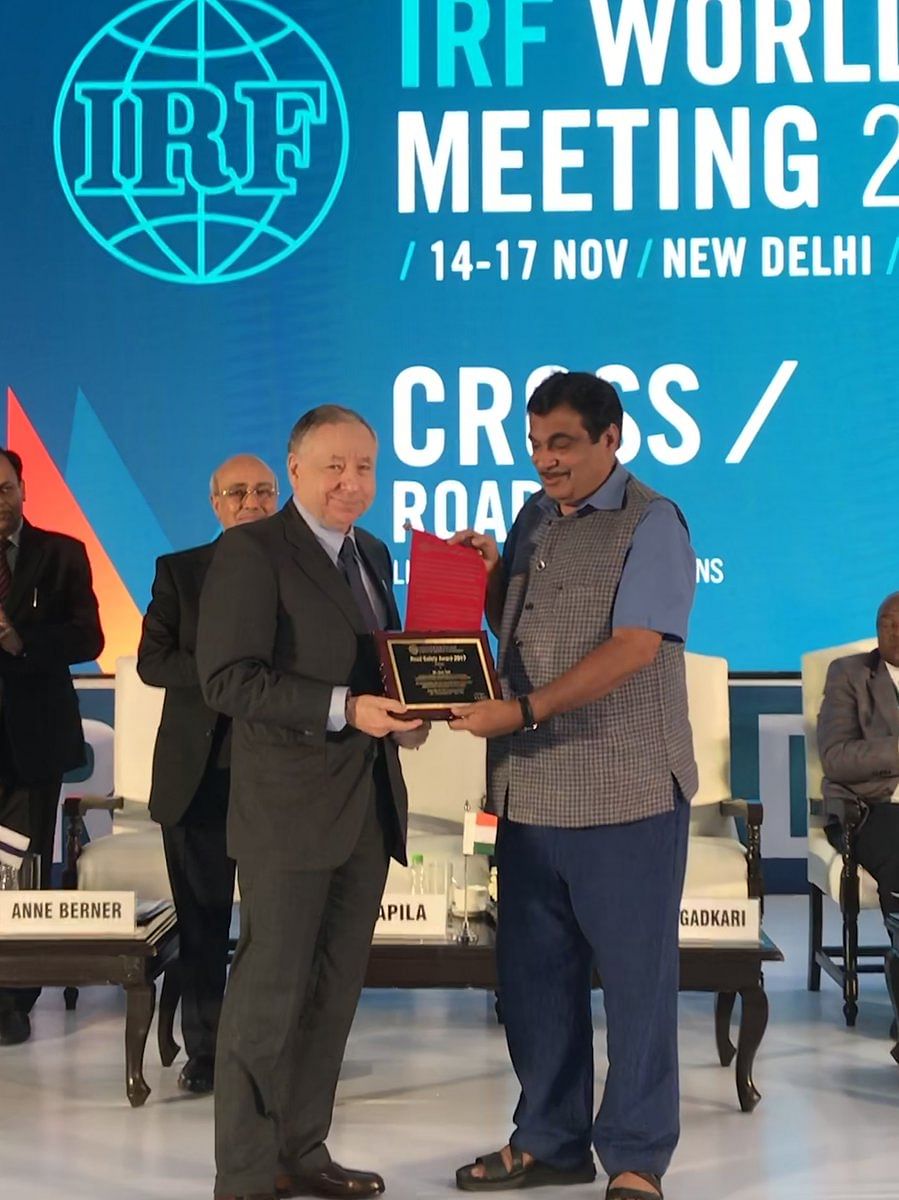Jean Todt: ‘India in dire need of reforms in its Motor Vehicle Act to improve road safety.’
UN crusader for road safety urges stronger legislative enforcement and call for a joint effort from the government, vehicle manufacturers and component suppliers to reduce road accidents and fatalities.
Road accidents the world over result in over 1.2 million people losing their lives each year, the major contributor to this number being low-to-middle income countries. India is positioned in a relatively "bad" spot, says UN crusader for road safety Jean Todt, commenting on human safety on the roads of the world's second largest populated country. In 2016, there were 1,317 accidents and 413 deaths on Indian roads each day.

Jean Todt speaking at the the inaugural session of the World Road Meeting 2017 at the India Expo Mart, Greater Noida. (Image: FIA/Twitter)
Todt, who is the president of the FIA (Federation International Automobile), and also the UN Secretary General’s Special Envoy for Road Safety, was attending the inaugural session of the World Road Meeting 2017 being held in the National Capital Region. According to Todt, “There needs to be a joint effort by the government, vehicle manufacturers and suppliers to collectively improve the current scenario on the Indian roads.”
“India has seen over one million people lose their lives on its roads during the last decade. The country is in dire need of reforms in its Motor Vehicle Act and needs stronger enforcement of these legislations,” he added.
Sharing insights on the UN’s sustainability program, Todt said, “Out of the total 17 pointers in the UN sustainable development goals, Target No. 3.6 aims to reduce global road deaths and injuries to half by 2020, and Target 11.2 focuses on enhancing penetration of safe and affordable public transport to be accessible to every citizen across the world by 2030.”
“The right level of political commitment, coordination and cross-sectional collaboration within countries could improve the situation of road safety across the world. Also, national governments and civil society groups need to play a bigger role in improving the situation,” he added.

Jean Todt receives the Road Safety award at the 18th World Road Meeting 2017 from Nitin Gadkari, Union minister of Road Transport, Highways and Shipping, government of India. (Image: FIA/Twitter)
Technology as a driver of safety
Todt also stressed upon the use of technology in accident data collection and its analysis, along with proper implementation of the UN road safety convention, which includes the use of seatbelts, helmets and child safety equipment. This, he said, is a basic step in the right direction to overcome the challenges of road safety, when over one billion people currently live in countries where no such charter is in place.
Speaking to Autocar Professional, Todt said, “In India, there needs to be an improvement in education about road safety, better law enforcement, difficulty in getting driving licenses, safer vehicles, safer roads, and better infrastructure.”
Rapidly developing vehicle technology is also going to play its part in ensuring a safer road environment, with safety equipment including airbags and ABS set to become a standardised norm in the coming years across the globe.
“At the 2017 Geneva Motor Show, we discussed with global carmakers, including Tata Motors, about providing a basic set of safety standards for all markets worldwide in a cost-effective manner,” said Todt.
“Self-driving vehicles will also improve road safety to a considerable extent with autonomous technology making its way into about a quarter of a million cars by 2020. But it would still take a few decades before autonomous technology comes to developing countries. For the time being, other safety measures need to be implemented in these parts of the world”, said Todt.
Transport ministers from various countries including Canada, Russia, Finland, Luxembourg, the Czech Republic, Burundi , Bosnia and Herzegovina, who were part of the Transport Ministers’ Forum on road safety, also signed the Delhi Declaration on November 13, reiterating and committing to protect all road users by providing a safer road infrastructure, post-crash response, professional driver qualification and adhering to fulfill other related targets under the UN’s sustainable development goals of 2030.
A cumulative funding of $770 billion is required to reduce road fatalities and injuries by half over the next decade, and according to Todt, “Road safety should be considered in the same way, as if it were an emergency like AIDS and malaria. If not controlled, it could become the seventh largest cause of global deaths by 2025.”
Also read: 1,317 accidents and 413 deaths on Indian roads each day in 2016
RELATED ARTICLES
Cosmo First diversifies into paint protection film and ceramic coatings
The Aurangabad, Maharashtra-based packaging materials supplier is leveraging its competencies in plastic films and speci...
JSW MG Motor India confident of selling 1,000 M9 electric MPVs in first year
The 5.2-metre-long, seven-seater luxury electric MPV, which will be locally assembled at the Halol plant in Gujarat, wil...
Modern Automotives targets 25% CAGR in forged components by FY2031, diversifies into e-3Ws
The Tier-1 component supplier of forged components such as connecting rods, crankshafts, tie-rods, and fork bridges to l...






 15 Nov 2017
15 Nov 2017
 6185 Views
6185 Views





 Autocar Professional Bureau
Autocar Professional Bureau




